It is well known that the COVID-19 virus challenges the immune system, and it is possible that supplementation with important nutrients could be helpful in fighting a COVID-19 infection. Zinc affects multiple areas of the immune system and is needed for the normal immune system to function. Zinc is considered a safe supplement with minimal side effects.
The most recent clinical trial, detailed below, showed no additional benefits with zinc supplementation.
 = Supporting use article = Supporting use article |
 = Neutral Article = Neutral Article |
 = Contradicting use article = Contradicting use article |

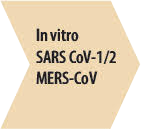 |
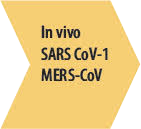 |
 |
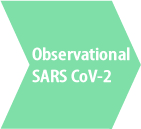  |
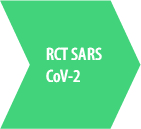  |
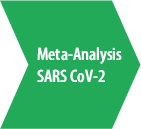 |
Major peer-reviewed studies
 Randomized Controlled Trial
Randomized Controlled Trial
-
 “Effect of High-Dose Zinc and Ascorbic Acid Supplementation vs Usual Care on Symptom Length and Reduction Among Ambulatory Patients With SARS-CoV-2 Infection” Thomas S, Patel D, Bittel B, et al. Effect of High-Dose Zinc and Ascorbic Acid Supplementation vs Usual Care on Symptom Length and Reduction Among Ambulatory Patients With SARS-CoV-2 Infection: The COVID A to Z Randomized Clinical Trial. JAMA Netw Open. 2021;4(2):e210369. doi:10.1001/jamanetworkopen.2021.0369
“Effect of High-Dose Zinc and Ascorbic Acid Supplementation vs Usual Care on Symptom Length and Reduction Among Ambulatory Patients With SARS-CoV-2 Infection” Thomas S, Patel D, Bittel B, et al. Effect of High-Dose Zinc and Ascorbic Acid Supplementation vs Usual Care on Symptom Length and Reduction Among Ambulatory Patients With SARS-CoV-2 Infection: The COVID A to Z Randomized Clinical Trial. JAMA Netw Open. 2021;4(2):e210369. doi:10.1001/jamanetworkopen.2021.0369This study looked to determine whether high-dose zinc and/or high-dose vitamin C reduced the severity or duration of COVID-19 compared to usual outpatient care. This was a multicenter, single health system randomized clinical factorial open-label trial of 214 patients with confirmed COVID-19 infections. Patients were randomized to either receive 10 days of zinc gluconate (50 mg), ascorbic acid (8000 mg), both agents, or standard of care. It was found that none of the interventions significantly decreased the duration of symptoms compared to standard care.
Major peer-reviewed studies providing context for therapy
 Observational Studies
Observational Studies
-
 “Prediction of survival odds in COVID-19 by zinc, age and selenoprotein P as composite biomarker” Heller RA, Sun Q, Hackler J, Seelig J, Seibert L, Cherkezov A, Minich WB, Seemann P, Diegmann J, Pilz M, Bachmann M, Ranjbar A, Moghaddam A, Schomburg L. Prediction of survival odds in COVID-19 by zinc, age and selenoprotein P as composite biomarker. Redox Biol. 2021 Jan;38:101764. Epub 2020 Oct 20.
“Prediction of survival odds in COVID-19 by zinc, age and selenoprotein P as composite biomarker” Heller RA, Sun Q, Hackler J, Seelig J, Seibert L, Cherkezov A, Minich WB, Seemann P, Diegmann J, Pilz M, Bachmann M, Ranjbar A, Moghaddam A, Schomburg L. Prediction of survival odds in COVID-19 by zinc, age and selenoprotein P as composite biomarker. Redox Biol. 2021 Jan;38:101764. Epub 2020 Oct 20.The purpose of the study was to look at COVID-19 positive patients and determine what their serum zinc levels were and compare this to the European Prospective Investigation into Cancer and Nutrition (EPIC). They also looked at the selenium status biomarker and the selenium transporter selenoprotein P (SELENOP). It was determined that both zinc and SELENOP, when within the reference ranges, indicate a higher survival odds in COVID-19 and assumes that correcting a diagnostically proven deficit in selenium and/or zinc by a personalised supplementation may support recovery from COVID-19.
Current Clinical Trials
- “Vitamin D and Zinc Supplementation for Improving Treatment Outcomes Among COVID-19 Patients in India”
- “RCT, Double Blind, Placebo to Evaluate the Effect of Zinc and Ascorbic Acid Supplementation in COVID-19 Positive Hospitalized Patients in BSMMU”
- “Hydroxychloroquine and Zinc With Either Azithromycin or Doxycycline for Treatment of COVID-19 in Outpatient Setting”
- “The Study of Quadruple Therapy Zinc, Quercetin, Bromelain and Vitamin C on the Clinical Outcomes of Patients Infected With COVID-19”
- "Zinc With Chloroquine/Hydroxychloroquine in Treatment of COVID-19”
- “Impact of Zinc and Vitamin D3 Supplementation on the Survival of Aged Patients Infected With COVID-19 (ZnD3-CoVici)”
- “Placebo Controlled Trial to Evaluate Zinc for the Treatment of COVID-19 in the Outpatient Setting”
- “A Study of Hydroxychloroquine, Vitamin C, Vitamin D, and Zinc for the Prevention of COVID-19 Infection (HELPCOVID-19)”
- “Zinc Versus Multivitamin Micronutrient Supplementation in the Setting of COVID-19 (ZnCOVID-19)”
- “Efficacy of Subcutaneous Ivermectin With or Without Zinc in COVID-19 Patients (SIZI-COVID-PK)”